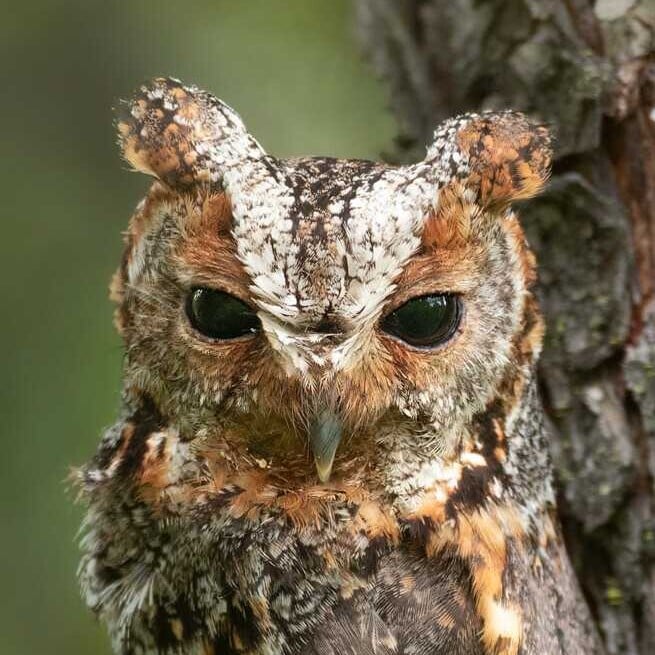cross-posted from: https://lemmy.world/post/15757735
I was reading more about owl vocalizations and had a hard time making much of the actual research paper as I don’t know much about statistics or acoustics. I think I got the jist of it, but this is probably more informative for you than it is for me, so I thought I’d share the post with you.
I’m sure things like this are being used in projects like BirdNET-Pi and in ongoing research.
Post based on: The assessment of biases in the acoustic discrimination of individuals Pavel Linhart (2017)
Owl live lives that are largely based on sound. This lets them have an almost omniscient view of the world around them. Being able to hear their world from a distance lets them stay in one location, allowing them to stay safely hidden while not having to fly around expending crucial energy to monitor their territories.
Pavel Linhart of the University of South Bohemia has studied many animal vocalizations to try and understand all the things they are able to communicate. Sound samples of animals are recorded, analyzed, and characteristics are removed with an algorithm to determine the contents of the animal’s message. These messages can contain body size, emotional states, and the identity of individuals among other things. Little Owls made a great species for Linhart to study. They live close together, do not migrate, and stay in a relatively small range, making them easy to work with.
The sounds are looked at by duration, frequency, and “colorations,” which seem to be small changes to basic calls. These differences can be analyzed and used to help determine both the number of individuals in a population, but also who those individuals are, with the goal being to allow individual monitoring through sound, basically being able to see the sounds of owl (or other animals) the way the owls themselves do; to know who is where and doing what.
One of the key takeaways from his research is that variations between individuals grow along with the density of the owl population. The conclusion drawn is there are benefits from having uniquely distinct sound signatures for individuals. Owls can communicate their presence to others and be identified as known owls, saving them the energy of investigating potential intruders to their territory. Owl calls do not change much over time, so even if they only encounter each other once a year for mating season, they can identify each other over great distance, year after year. There is also benefit to researchers, as it brings them closer to being able to use those same sounds to monitor individual animals using recorded sound.
To demonstrate some of the variations between individuals, Linhart has also published a Little Owl Match Game. There are 16 “cards,” each containing a recording of a Little Owl (and some simulated owls) for you to try to successfully match the calls as if you where the algorithm trying to match the sound to a known individual. You can play the game here.
In a related story, researcher Karla Bloem was studying Great Horned Owl calls when she met Baroque music specialist Marjon Savelsberg, who fell in love with the sounds of owl calls and became a virtual assistant volunteering to try to pick out individual owls by their vocalizations.
Her musical training made her very successful to pick out these individual variations between individual calls. She is now using her abilities to work with Eurasian Eagle Owls in her native Netherlands.
Savelsberg with a baby Eagle Owl
Thanks so much for sharing this! That game is crazy, I can’t imagine actually being good at it. Even with all the sounds right there, able to be played right next to each other in a controlled setting, it is super hard. I can’t imagine being able to recognize individuals from various distances out in the wild. It is remarkable how this is just a standard ability to so many animals.
Glad you enjoyed it! I feel much of the info is lost on me. I did pretty good at the game though. I think it said my rank beat 86% of players. I’m studying music right now though, so I do spend a fair bit of time working on my listening skills. Still, I feel I just got lucky.
When your life depends on these skills, you’re only going to be left with the best of the best, so it’s no wonder the animals can do it.
It’s been almost a year now I’ve been Lemmy’s amateur owl guru, and I still learn so much about these amazing animals every day. Such impressive creatures!



